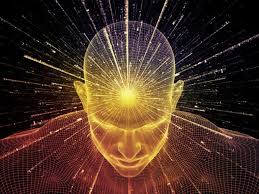
Breaking News
 Your body has a hidden reset button that most people never use.
Your body has a hidden reset button that most people never use.
 A Simple Way to Grow Fresh Greens Indoors
A Simple Way to Grow Fresh Greens Indoors
 Windows 10 is DEAD in 2025? -- Here's How I Run It SAFELY Forever (No Updates)
Windows 10 is DEAD in 2025? -- Here's How I Run It SAFELY Forever (No Updates)
Top Tech News
 HUGE 32kWh LiFePO4 DIY Battery w/ 628Ah Cells! 90 Minute Build
HUGE 32kWh LiFePO4 DIY Battery w/ 628Ah Cells! 90 Minute Build
 What Has Bitcoin Become 17 Years After Satoshi Nakamoto Published The Whitepaper?
What Has Bitcoin Become 17 Years After Satoshi Nakamoto Published The Whitepaper?
 Japan just injected artificial blood into a human. No blood type needed. No refrigeration.
Japan just injected artificial blood into a human. No blood type needed. No refrigeration.
 The 6 Best LLM Tools To Run Models Locally
The 6 Best LLM Tools To Run Models Locally
 Testing My First Sodium-Ion Solar Battery
Testing My First Sodium-Ion Solar Battery
 A man once paralyzed from the waist down now stands on his own, not with machines or wires,...
A man once paralyzed from the waist down now stands on his own, not with machines or wires,...
 Review: Thumb-sized thermal camera turns your phone into a smart tool
Review: Thumb-sized thermal camera turns your phone into a smart tool
 Army To Bring Nuclear Microreactors To Its Bases By 2028
Army To Bring Nuclear Microreactors To Its Bases By 2028
 Nissan Says It's On Track For Solid-State Batteries That Double EV Range By 2028
Nissan Says It's On Track For Solid-State Batteries That Double EV Range By 2028
Is 'Real' AI Possible?

Some of these visions were dystopic, like Skynet in the Terminator movies. Today, almost everyone takes it for granted that artificial intelligence (AI) on par with human cognition is just around the corner, but is it realistic? Surprisingly, there are good reasons to be pessimistic about the prospects of smart machines.
Materialism And Reductionism
The basis of AI optimism is the widespread conviction in materialism and reductionism. Materialism is the belief that everything is made from dead matter, that consciousness is an illusion, and that the human mind is the product of a machine – the brain. Reductionism is the belief that everything can be understood by chopping it up into its parts and only studying their properties as if it were machinery. It has been the backbone of many scientific and technological achievements.
Its success has led people to believe that it also applies to consciousness and intelligence. All we need to do is to write a clever program and run it on a sufficiently powerful computer and voila: It will be as bright as us.

 What MAGA is focused on
What MAGA is focused on Carbon based computers that run on iron
Carbon based computers that run on iron

